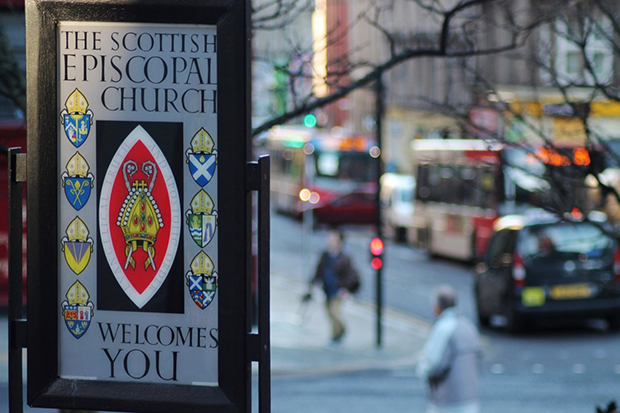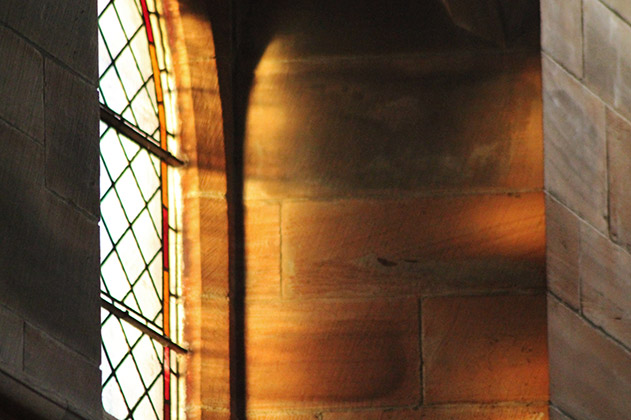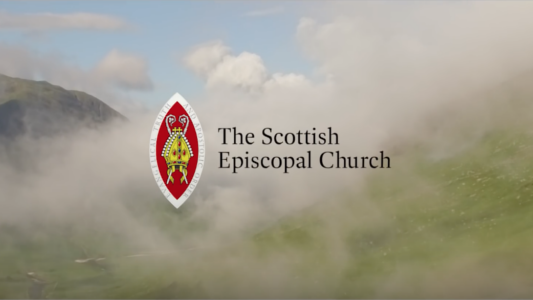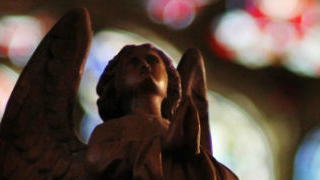General Synod members have backed a ten-point guidance plan on the first step towards the Scottish Episcopal Church achieving net zero carbon emissions by 2030.
Members met online again for day two of General Synod 2021, with a handful of core participants gathered at St Paul’s & St George’s Episcopal Church in Edinburgh.
The Primus, the Most Rev Mark Strange, Bishop of Moray Ross & Caithness, opened Session Four of Synod with Morning Prayer, before business began.
Following a motion at last year’s Synod for a programme of actions to be brought to General Synod 2021 to resource the SEC in working towards the 2030 goal, the Church in Society Committee’s Technical Group on Climate Change presented a programme along with useful resources “aimed to equip the whole church for the urgent response that is needed towards achieving net zero carbon emissions”.
The Group has set out actions for different levels of the SEC to pursue, as congregations, dioceses, provincial level and as individuals; suggested more detailed action on buildings; listed useful resources; and indicated further work to be carried out.
Further, a Toolkit is currently in preparation, designed to provide practical recommendations for the implementation of action plans and including for instance a means of working out a church’s carbon footprint.
“The changes we need to make encompass almost all aspects of our life as a church; not only our buildings, but in every area where we burn coal, oil or gas,” reported the Group. “We need to transition to renewable alternatives as far as we possibly can, and where this is not reasonably practical, we need to reduce, save and offset. We do not underestimate the challenge. But there are many steps we can already take which will make a difference and we need to plan now for how and when the bigger challenges could be met.”
The Rev Dr Jenny Wright, Convener of the Church in Society Committee, spoke to the report, telling Synod members: “Achieving net zero by 2030 is no small feat. Neither are the obstacles insurmountable. I hope that the programme of actions, today’s presentation and the group discussions will be the first of many such conversations.
“This is merely a starting point – we recognise that support and resources on both provincial and diocesan level are necessary. Rest assured, you will not be left alone to reduce your carbon footprint and engage with climate action.”
Dr Donald Bruce, chair of the Technical Group on Climate Action, reminded Synod of the urgency of the need to take action, and the responsibility of everyone to contribute.
“We are not alone in this task,” said Dr Bruce. “There’s a movement right across the chorus in the UK and some excellent experience to draw upon from Eco-Congregation Scotland, it’s English equivalent: Eco-Church, the Church of England and Church of Scotland both have excellent expert energy advice which we can call upon. And this is real world rooted advice, based on what you can really do, on the ground in a real church.”
Dr Bruce’s full address can be read here.
Synod then went into break-out groups for discussion and debate, and when the meeting return to plenary session, a number of points were raised from the floor.
The Rev James Currall felt that the programme of actions was not dissimilar to any secular organisation’s proposals, but also added: “The climate crisis is caused by over-consumption. We need to minimise by consuming less and choosing options with lower carbon footprint.”
Mr Currall’s observation was echoed in one of a series of points made by Martin Auld, Diocese of Aberdeen & Orkney. Mr Auld praised the action document as an “excellent start” on the road to a net zero carbon 2030, and as well as the need to reduce demand and thus reduce consumption, he suggested that the plan should include measurements and targets for an energy audit, preparation of an asset register which includes land as well as buildings, inclusion of carbon footprint created by all groups who frequent multi-use church buildings, and wasteful use of water.
The Rev Prof David Atkinson warned of the danger of churches becoming bored with the process over the next nine years, and urged Standing Committee to ensure climate change remains on the Synod agenda every year. He said: “Standing Committee should come up with a long term plan to keep it to the forefront of our attention.”
All four climate change motions were carried virtually unopposed, and the guidance and action documents were endorsed and commended. Within the motions, Synod also called on Standing Committee to put in place appropriate structures to enable action at provincial level, with Dioceses called on to do the same at congregational level.
The full Action Plan on Climate Change can be read here.








